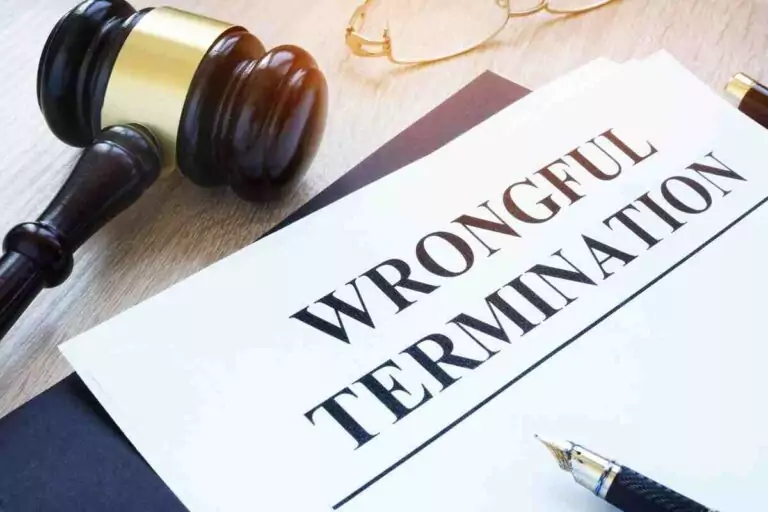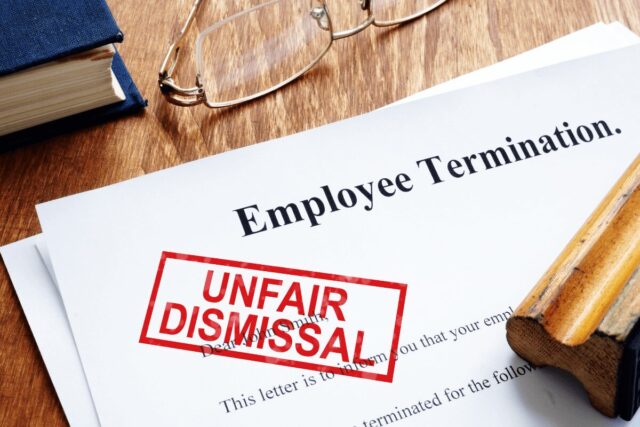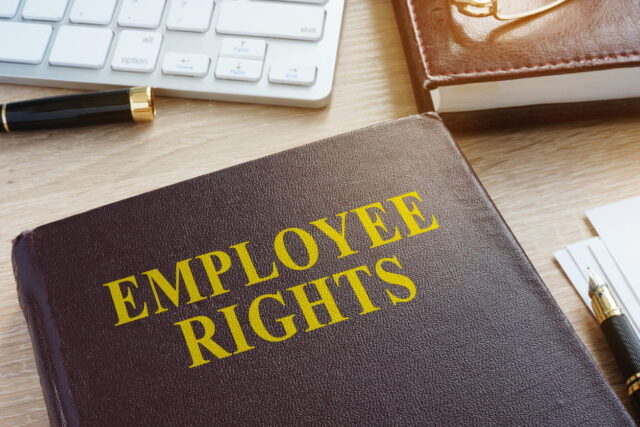
In the Centennial State, as in most of the United States, employment is at-will by default. This means that an employer can terminate your employment for any reason, as long as it is not illegal. However, there are exceptions to this rule.
Wrongful termination is a serious matter, and understanding your rights as an employee in Colorado is crucial. In this comprehensive guide, we will explore what constitutes wrongful termination, the wrongful termination Colorado laws protecting employees in Colorado, and the steps you can take if you believe you have been wrongfully terminated.
Understanding At-Will Employment
Before delving into wrongful termination, it’s important to grasp the concept of at-will employment. In Colorado, as in many other states, employment is presumed to be at-will unless there is a specific employment contract stating otherwise. At-will employment means that either the employer or the employee can terminate the employment relationship at any time and for any reason, with or without notice.
Exceptions to At-Will Employment

While at-will employment is the default, there are important exceptions that limit an employer’s ability to terminate employees without cause:
1. Implied Contracts
Sometimes, even without a written contract, an employer’s actions and statements can create an implied contract that alters the at-will relationship. For example, if your employer promises job security or specifies a particular process for termination, it may create a contractual obligation to follow those terms.
2. Public Policy Exception
Colorado recognizes a public policy exception to at-will employment. This means that employers cannot fire employees for reasons that violate established public policies. For instance, an employer cannot terminate you for refusing to engage in illegal activities or for reporting illegal conduct within the company.
3. Covenant of Good Faith and Fair Dealing
Colorado law implies a covenant of good faith and fair dealing in all employment relationships. This means that employers are expected to act in good faith and treat employees fairly in all employment decisions. Termination decisions made in bad faith or for vindictive reasons may be deemed wrongful.
Now that you have a basic understanding of at-will employment and its exceptions, let’s dive deeper into what constitutes wrongful termination in Colorado.
What Constitutes Wrongful Termination in Colorado?

Wrongful termination occurs when an employer fires an employee for reasons that are illegal or in violation of the employment contract, implied or explicit. In Colorado, several factors can contribute to a wrongful termination claim:
1. Discrimination
One of the most common forms of wrongful termination is discrimination. Colorado law, in alignment with federal laws, prohibits employers from terminating employees based on protected characteristics such as race, color, religion, sex, national origin, age, disability, sexual orientation, and gender identity. If you believe you were fired because of any of these factors, you may have a valid wrongful termination claim.
2. Retaliation
Retaliation occurs when an employer terminates an employee for engaging in protected activities, such as reporting workplace discrimination, harassment, safety violations, or illegal activities within the company. It’s essential to know that retaliation is illegal, and you have the right to report such actions without fear of losing your job.
3. Whistleblower Protections
Colorado has strong whistleblower protection laws. If you were terminated for reporting unlawful activities or violations of state or federal law by your employer, you may be protected under Colorado’s whistleblower statutes.
4. Breach of Employment Contract
If you have an employment contract that outlines specific terms and conditions for termination, your employer must adhere to those terms. Terminating you in violation of the contract could constitute wrongful termination.
5. Violation of Public Policy
As mentioned earlier, if your termination violates established public policy, it may be considered wrongful. For instance, if you were fired for exercising your right to vote or for serving on a jury, it would likely violate public policy.
6. Violation of Implied Covenant of Good Faith and Fair Dealing
Colorado’s implied covenant of good faith and fair dealing requires employers to act in good faith when making employment decisions. If your termination was motivated by bad faith or lacked a legitimate reason, it may be wrongful.
Now that you have a clear understanding of what wrongful termination entails, let’s explore the laws and agencies that protect your rights as an employee in Colorado.
Laws Protecting Employees in Colorado

Colorado has several laws in place to protect employees from wrongful termination and other employment-related issues. Understanding these laws is crucial for safeguarding your rights:
1. Colorado Anti-Discrimination Act (CADA)
CADA is a state law that prohibits employers from discriminating against employees based on protected characteristics, including race, color, religion, sex, national origin, age, disability, sexual orientation, and gender identity. If you believe you have been discriminated against, you can file a complaint with the Colorado Civil Rights Division (CCRD).
2. Colorado Wage Act
The Colorado Wage Act governs issues related to wages, including overtime pay and final paychecks. Employers are prohibited from retaliating against employees who assert their rights under this law.
3. Colorado Whistleblower Protection Act
This act protects employees who report violations of state or federal law from retaliation by their employers. If you have information about illegal activities within your company and fear retaliation, you can seek protection under this law.
4. Family and Medical Leave Act (FMLA)
FMLA is a federal law that allows eligible employees to take unpaid leave for certain family and medical reasons. Your employer cannot terminate you for taking FMLA leave, and you have the right to be reinstated to your position or an equivalent one upon your return.
5. Colorado Workers’ Compensation Act
Employees who suffer work-related injuries are entitled to workers’ compensation benefits. It is illegal for your employer to terminate you for filing a workers’ compensation claim.
6. Employment Retirement Income Security Act (ERISA)
ERISA protects employees’ rights to their retirement and pension benefits. Employers cannot terminate employees for asserting their rights under ERISA.
Steps to Take if You Believe You’ve Been Wrongfully Terminated

If you suspect that you’ve been wrongfully terminated in Colorado, taking the right steps is crucial to protect your rights and potential legal claims:
1. Document Everything
Gather and organize all relevant documents, including employment contracts, emails, performance reviews, and any evidence of discrimination or retaliation.
2. Consult with an Attorney
Consider consulting with an experienced employment attorney who specializes in wrongful termination cases. They can evaluate your situation, provide legal advice, and help you understand your options.
3. File a Complaint
If you believe your termination was due to discrimination or retaliation, you can file a complaint with the appropriate agency. For discrimination claims, contact the Colorado Civil Rights Division (CCRD). For retaliation or whistleblower claims, consider contacting the Colorado Department of Labor and Employment (CDLE).
4. Negotiate with Your Employer
In some cases, it may be possible to resolve the issue through negotiation with your former employer. Your attorney can assist you in pursuing a fair resolution.
5. Consider Legal Action
If negotiation fails, you may decide to pursue legal action against your employer. Your attorney can guide you through the process of filing a lawsuit and seeking compensation for damages.
Conclusion
Understanding your rights as an employee in Colorado is essential, especially when it comes to wrongful termination. While at-will employment is the default, there are important exceptions and laws in place to protect you from unjust firing. If you believe you’ve been wrongfully terminated, it’s crucial to document everything, consult with an attorney, and take appropriate action to assert your rights. By knowing your rights and the legal avenues available to you, you can navigate the complexities of employment law and seek justice if you’ve been wronged.









